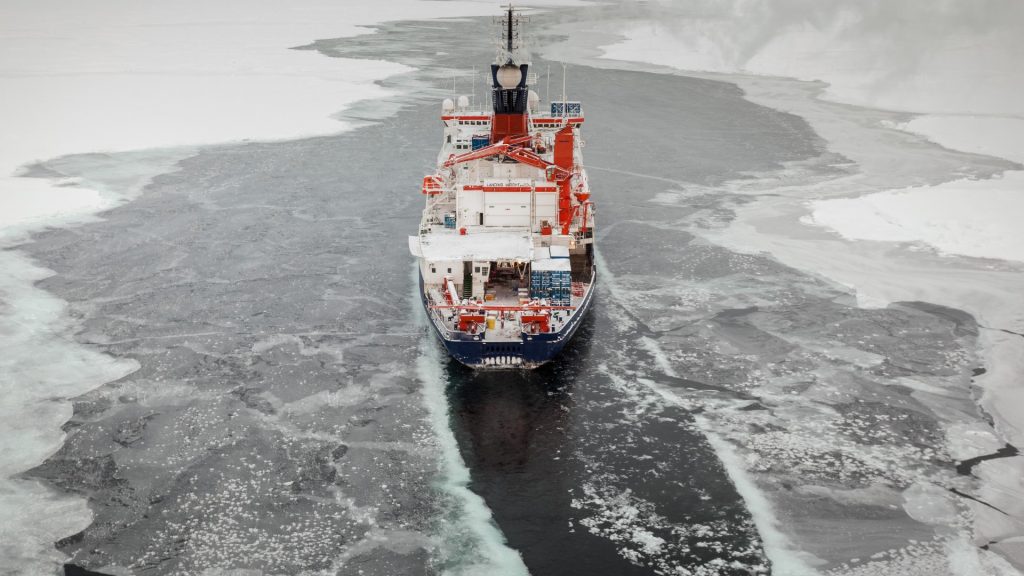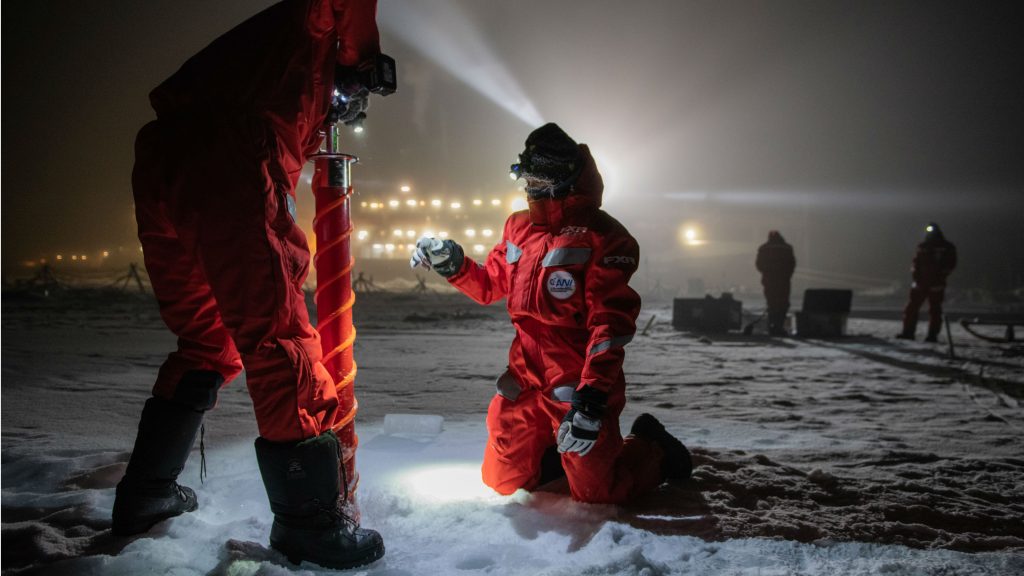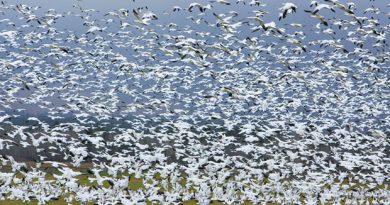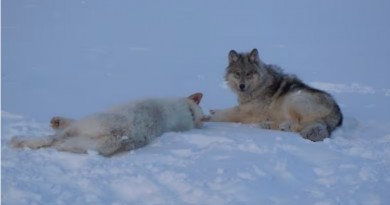MOSAiC international Arctic science expedition expedition reaches North Pole

An international science expedition reached the North Pole on Wednesday after project leaders noticed shrinking sea-ice conditions and “surprisingly loose” ice cover that would make the trip possible.
The route taken was over northern Greenland from the Fram Strait, located west of the Arctic archipelago of Svalbard.
“For this region, the current situation is historic,” said Thomas Wunderlich captain of the German research icebreaker Polarstern, in a news release on Wednesday.
“Normally it’s wise to avoid the region north of Greenland, because it’s home to the thicker and older ice, and virtually impassable. But now we’re finding extended stretches of open water, reaching nearly to the Pole.”
Markus Rex, MOSAiC’s expedition leader, said when they first examined the satellite imagery for Wednesday’s route, they thought the ice breakup they were seeing could possibly be due to strong ocean currants or winds and was surprised to see when they arrived in the region that the ice really had “just melted away.”
In total, the trip took six days.
Final freeze up phase
The scientists on board the Polarstern are part of the Multidisciplinary drifting Observatory for the Study of Arctic Climate (MOSAiC) expedition. The project was launched in September 2019 in the Siberian region to study climate systems in the Central Arctic by allowing the Polarstern to become locked in the ice and be carried across the Arctic by the floe over the following year.
International teams of experts have been rotating on an off vessel throughout the research period.

The budget for MOSAiC is 140 million euros and it’s led by the Alfred Wegener Institute, Helmholtz Centre for Polar and Marine Research (AWI).
The initial MOSAiC floe broke up in July, and now, with the project entering its final phase, the team will be examining the freeze up period.
“Depending on the ice conditions, however, we’ll also start looking for a suitable floe in the vicinity of the North Pole, so that we can start working on the ice as soon as possible,” Rex said.
Canada participating in project
By the time the project wraps up at the end of September, more than 600 experts from 20 different countries, including Canada, will have worked on the Polarstern at some point during the expedition.
The Polarstern is expected back in port in Germany by mid-October.
The expedition can be tracked in real time on the MOSAiC web app.
Write to Eilís Quinn at eilis.quinn(at)cbc.ca
Related stories from around the North:
Canada: Canada’s last fully intact ice shelf collapses in Arctic, Eye on the Arctic
Greenland: ‘Canary in the coal mine’: Greenland ice has shrunk beyond return, study finds, Eye on the Arctic
Finland: 40 C temperature gap between northern and southern Finland, Yle News
Norway: Temperatures on Svalbard have been above normal for 100 straight months, The Independent Barents Observer
Russia: Russian climate report stresses adaptation but no reduction in fossil fuel extraction, The Independent Barents Observer
Sweden: January temperatures about 10°C above normal in parts of northern Sweden, says weather service, Radio Sweden
United States: Temperatures nearing all-time records in Southcentral Alaska, Alaska Public Media



